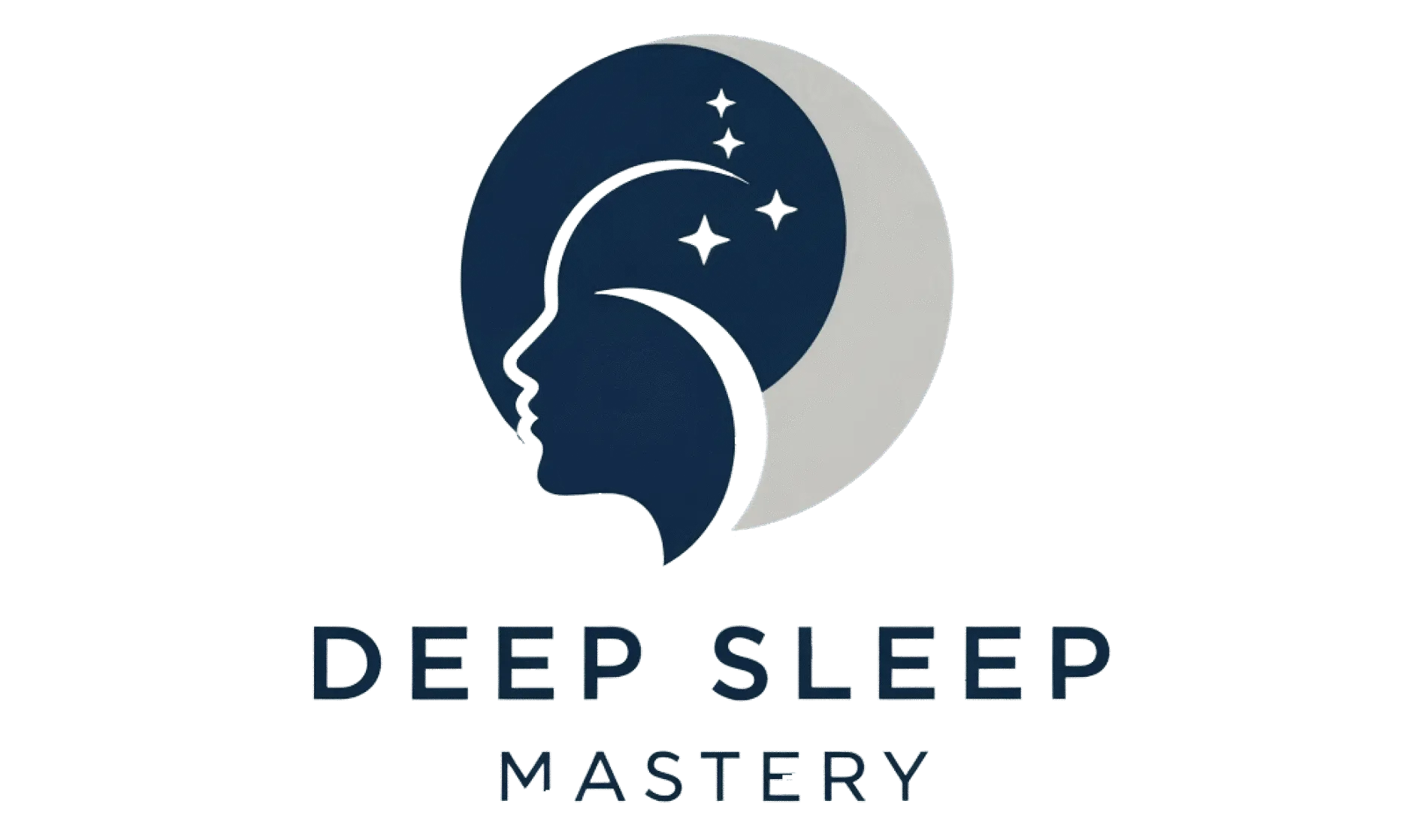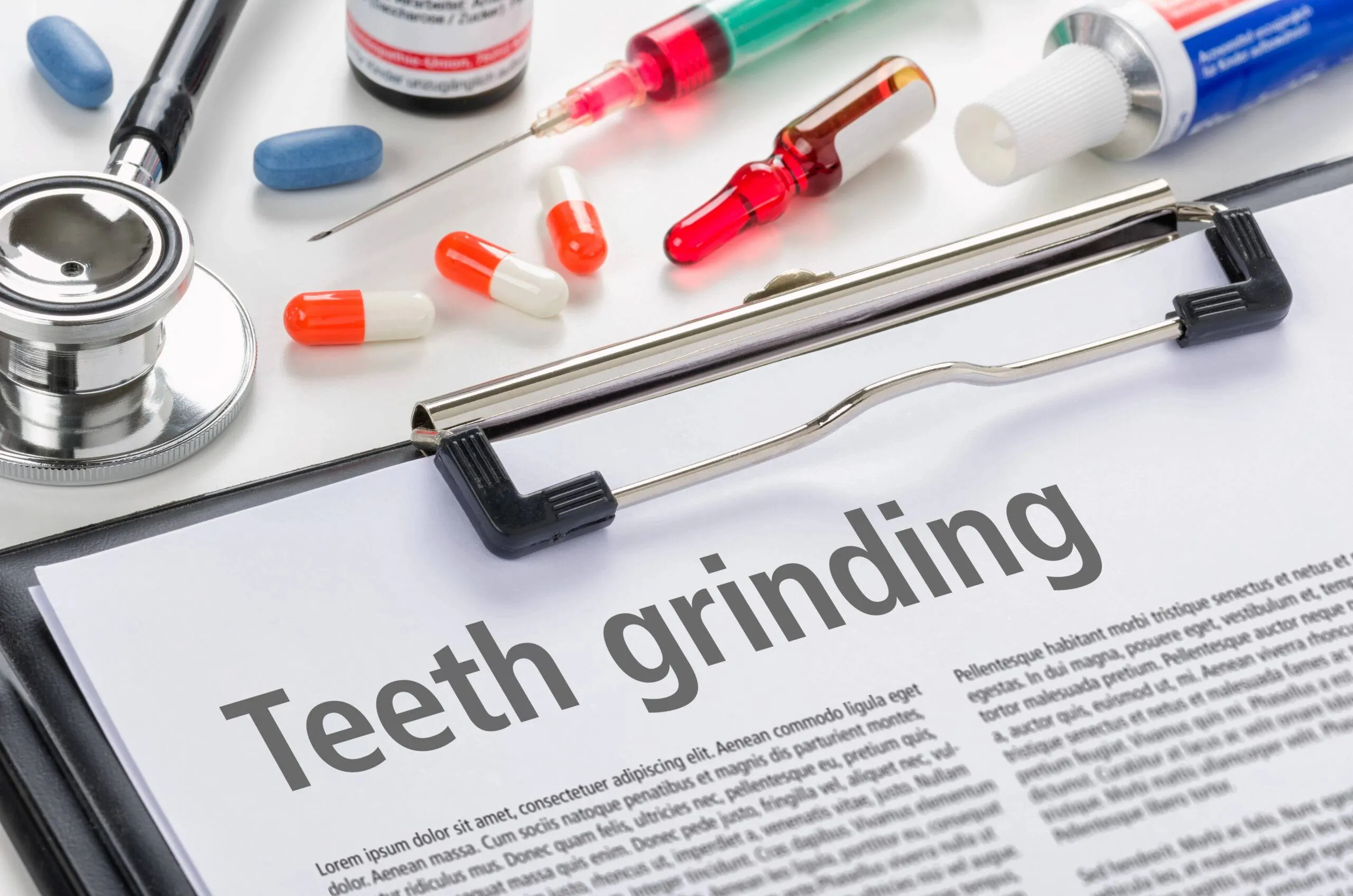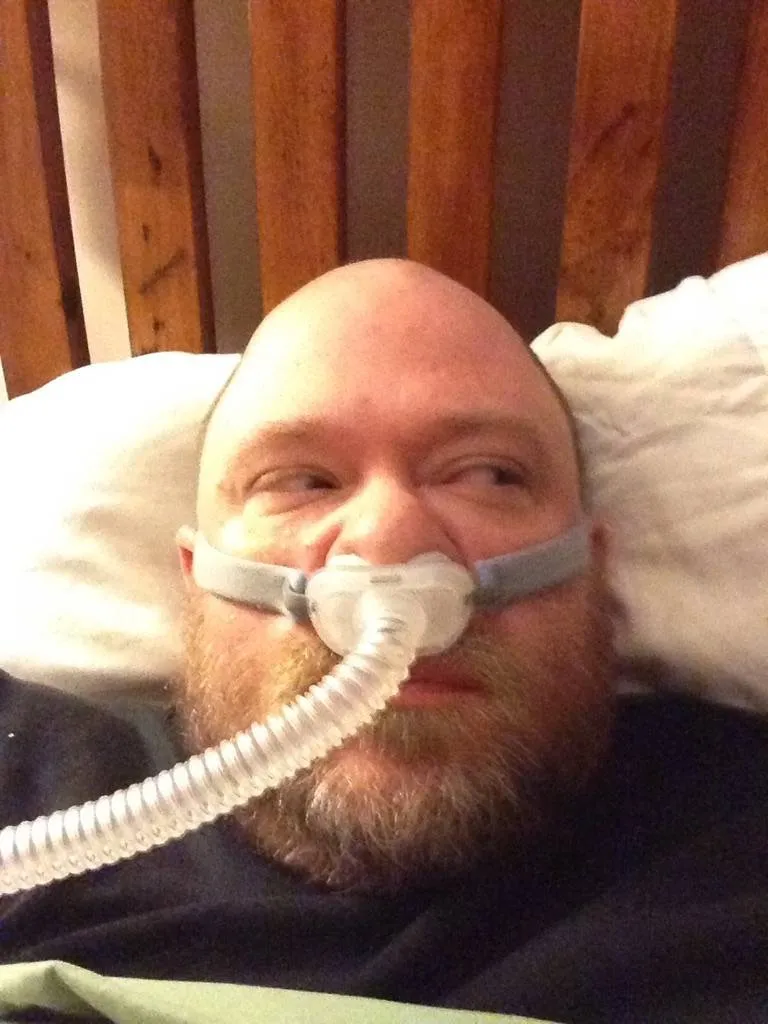Teeth Grinding at Night: Causes and Prevention Strategies That Actually Work
Picture this: you wake up with a splitting headache, your jaw feels like you’ve been chewing rocks all night, and your partner mentions hearing weird grinding sounds coming from your side of the bed. Sound familiar? You’re definitely not alone in this struggle.
Here’s a stat that might surprise you – between 8 and 16% of adults grind their teeth at night, which means millions of people are literally wearing down their pearly whites while they sleep! I used to be one of those people, and let me tell you, it’s not fun. But here’s the good news: once I figured out what was causing my nighttime grinding and learned some practical prevention strategies, I was able to get it under control.
In this guide, I’m going to share everything I’ve learned about teeth grinding – from the sneaky causes you might not expect to the simple strategies that can give you relief starting tonight. Whether you’re dealing with occasional grinding or chronic bruxism that’s affecting your quality of life, there are real solutions that work.
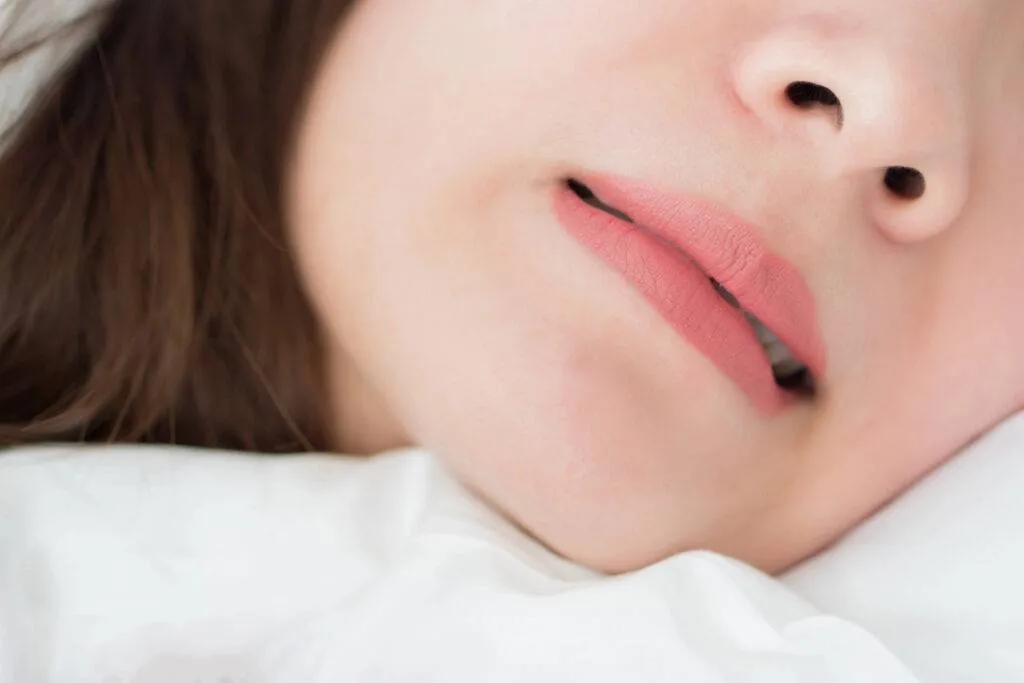
What Is Nighttime Teeth Grinding (Bruxism)?
Let’s start with the basics because understanding what’s actually happening can help you tackle the problem more effectively. Nighttime teeth grinding, which doctors call “sleep bruxism,” is when you unconsciously clench or grind your teeth while you’re asleep.
Now, this is different from daytime teeth grinding – that’s called “awake bruxism” and it’s usually related to stress or concentration. With sleep bruxism, you have zero control over it because you’re completely unconscious. Your jaw muscles just go into overdrive while you’re dreaming about whatever.
The grinding can range from light clenching that doesn’t make much noise to full-on grinding that sounds like a coffee grinder went off in your bedroom. I remember my college roommate telling me it sounded like I was trying to start a chainsaw in my sleep – not exactly the feedback you want to hear!
Most people don’t even realize they’re doing it until someone else points it out or they start experiencing symptoms. The tricky thing is that occasional grinding is actually pretty normal. We all clench our jaws sometimes during sleep. But when it becomes frequent or intense enough to cause damage or pain, that’s when it crosses into problem territory.
Sleep bruxism typically happens during lighter stages of sleep, and it often comes in episodes. You might grind for a few seconds, stop, then start up again later in the night. Some people have just a few episodes per night, while others can have dozens.
The Hidden Causes Behind Your Nighttime Teeth Grinding
This is where things get interesting because the causes of teeth grinding aren’t always what you’d expect. Sure, stress is a big one – and I’ll get to that – but there are some surprising triggers that might be flying under your radar.
Stress and anxiety are definitely the heavyweight champions of bruxism causes. When I was going through a particularly stressful period at work, my teeth grinding got so bad that I actually cracked a molar. Your body doesn’t just shut off stress when you fall asleep; it finds ways to express that tension, and for many of us, that means turning our jaws into little nighttime construction sites.
But here’s something that blew my mind when I first learned about it: certain medications can actually cause or worsen teeth grinding. Antidepressants, especially SSRIs, are notorious for this. I had a friend who started grinding her teeth about a month after starting a new antidepressant, and nobody connected the dots until her dentist asked about medication changes.
Sleep disorders are another huge factor that often gets overlooked. Sleep apnea, in particular, seems to go hand-in-hand with bruxism. Your body might be trying to reposition your jaw to keep your airway open, which can trigger grinding episodes. Restless leg syndrome and other sleep movement disorders can also increase your chances of bruxism.
Then there are the lifestyle factors that can sneak up on you. That afternoon coffee might be affecting your sleep more than you realize, and caffeine can definitely ramp up muscle tension in your jaw. Alcohol is another sneaky culprit – while it might help you fall asleep initially, it can disrupt your sleep cycles and increase the likelihood of grinding later in the night.
Smoking is also linked to increased bruxism risk, probably because nicotine is a stimulant that can affect your nervous system even while you sleep. And here’s something interesting: genetics play a role too. If your parents or siblings grind their teeth, you’re more likely to do it as well.
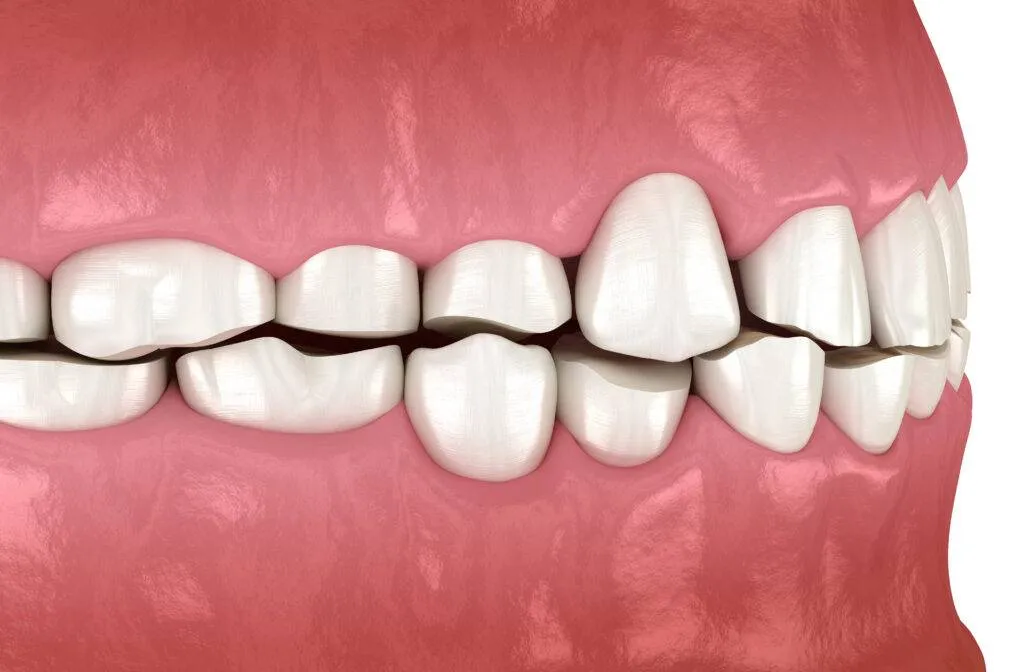
Warning Signs You’re Grinding Your Teeth at Night
The tricky thing about sleep bruxism is that you might be doing serious damage before you even realize what’s happening. I ignored the warning signs for months before I finally connected the dots, and by then I had already done some pretty significant wear to my teeth.
The most obvious sign is jaw pain, especially first thing in the morning. If you wake up feeling like your jaw ran a marathon overnight, that’s a pretty strong indicator. The pain might be right at the jaw joint (near your ears) or in the muscles along the sides of your face. Sometimes it’s a dull ache, other times it can be sharp and intense.
Headaches are another biggie, particularly tension headaches that start at your temples or the back of your head. I used to wake up with headaches so bad that I thought I needed new pillows or a different mattress. Turned out my jaw muscles were so tight from grinding that they were pulling on all the muscles in my head and neck.
Your ears might also give you clues. Ear pain or a feeling of fullness in your ears can actually be referred pain from your overworked jaw muscles. Some people even experience ringing in their ears (tinnitus) related to severe bruxism.
Of course, if you have a sleep partner, they might be your best early warning system. The grinding sound can range from subtle to downright alarming. One woman I know said her husband’s grinding was so loud it woke her up from the other side of the house!
From a dental perspective, your teeth will start showing signs of wear. You might notice that your teeth look shorter, flatter, or have chips and fractures. The edges might look worn down or uneven. Your dentist will definitely spot these changes during regular checkups, which is why it’s so important to keep up with dental visits.
Immediate Relief Strategies You Can Try Tonight
When you’re dealing with jaw pain and disrupted sleep, you want relief fast. These are the strategies that have worked best for me and others I know who’ve struggled with nighttime grinding.
First up: heat therapy before bed. I keep a small heating pad next to my bed, and about 20 minutes before I plan to sleep, I apply gentle heat to my jaw muscles. It helps relax the tension that builds up during the day. You can also use a warm washcloth if you don’t have a heating pad – just make sure it’s not too hot.
Jaw exercises might sound counterintuitive when your jaw already hurts, but gentle stretching can actually provide relief. Try opening your mouth as wide as comfortable, then moving your jaw side to side slowly. Hold each position for a few seconds. I do this routine every night, and it’s become as automatic as brushing my teeth.
Here’s something that sounds simple but makes a huge difference: conscious jaw relaxation before sleep. Lie in bed and focus on completely relaxing your jaw muscles. Let your tongue rest gently at the bottom of your mouth, and keep a small space between your upper and lower teeth. I know it sounds basic, but training your jaw to relax before sleep can help reduce nighttime tension.
Magnesium supplements have been a game-changer for many people, including myself. Magnesium helps with muscle relaxation and can reduce overall tension. I take about 200mg about an hour before bed. Just check with your doctor first, especially if you’re taking other medications.
Creating a calming bedtime routine is crucial because anything that reduces overall stress and anxiety will help with grinding. I dim the lights an hour before bed, do some light stretching, and avoid screens. Some people swear by meditation apps or calming music.
If you’re dealing with acute pain, over-the-counter anti-inflammatories like ibuprofen can help reduce jaw muscle inflammation. Just don’t rely on them long-term without talking to your doctor.

Long-Term Prevention Strategies for Teeth Grinding
The immediate relief strategies are great for managing symptoms, but if you want to really tackle teeth grinding, you need to address the root causes. This is where the real work happens, but it’s also where you can see lasting results.
Stress management is probably the most important long-term strategy, and I get it – easier said than done. But here’s what actually works: regular exercise, even just 20-30 minutes of walking daily, can significantly reduce overall stress levels. I noticed a real difference in my grinding when I started taking evening walks after dinner.
Sleep hygiene improvements can have a massive impact. Going to bed and waking up at consistent times helps regulate your sleep cycles, which can reduce bruxism episodes. I had to give up my habit of scrolling through my phone in bed – the blue light was definitely affecting my sleep quality.
Your bedroom environment matters more than you might think. Keep it cool (around 65-68°F), dark, and quiet. I invested in blackout curtains and a white noise machine, and both made a noticeable difference in my sleep quality and grinding frequency.
Dietary changes can also help. Limiting caffeine, especially after 2 PM, reduced my nighttime muscle tension significantly. Alcohol might seem relaxing, but it actually disrupts your sleep cycles and can increase grinding later in the night. I’m not saying you have to give up your evening glass of wine, but paying attention to how it affects your sleep can be enlightening.
If you suspect an underlying sleep disorder might be contributing to your bruxism, it’s worth getting a sleep study. Sleep apnea treatment, for example, often dramatically reduces teeth grinding. I know several people who got CPAP machines for sleep apnea and saw their bruxism improve as a bonus.
Professional counseling or therapy can be incredibly helpful if stress and anxiety are major factors in your grinding. Cognitive behavioral therapy (CBT) has shown good results for people with stress-related bruxism. Sometimes just having tools to manage stress better can make all the difference.
When to See a Doctor or Dentist About Teeth Grinding
Knowing when to seek professional help can save you from serious dental damage and chronic pain. I wish I had gone to my dentist sooner instead of trying to tough it out on my own.
If you’re experiencing any of these red flags, it’s time to make an appointment: severe jaw pain that interferes with eating or talking, frequent headaches (especially morning headaches), visible damage to your teeth like chips or unusual wear patterns, or if your sleep partner says your grinding is loud and frequent.
Persistent ear pain or ringing in your ears that doesn’t have another obvious cause could also be related to severe bruxism. I had a friend who went to an ENT specialist for ear problems before anyone thought to ask about teeth grinding.
During a dental evaluation for bruxism, your dentist will look for signs of wear on your teeth, check your bite alignment, and examine your jaw muscles for tenderness. They might also ask detailed questions about your sleep habits, stress levels, and any medications you’re taking. Don’t be embarrassed to share everything – the more information they have, the better they can help.
Your dentist might recommend a night guard, which I’ll talk more about in the next section. For severe cases, they might refer you to a sleep specialist or suggest other treatments like Botox injections for overactive jaw muscles (yes, that’s actually a thing and it works for some people).
If your bruxism seems related to stress or anxiety, your doctor might suggest counseling or, in some cases, medication adjustments if you’re already taking antidepressants or other medications that might contribute to grinding.
Insurance coverage for bruxism treatment varies widely. Night guards are usually covered if they’re deemed medically necessary, but check with your insurance company about what documentation they need. Some require a sleep study or specific diagnostic criteria to be met.
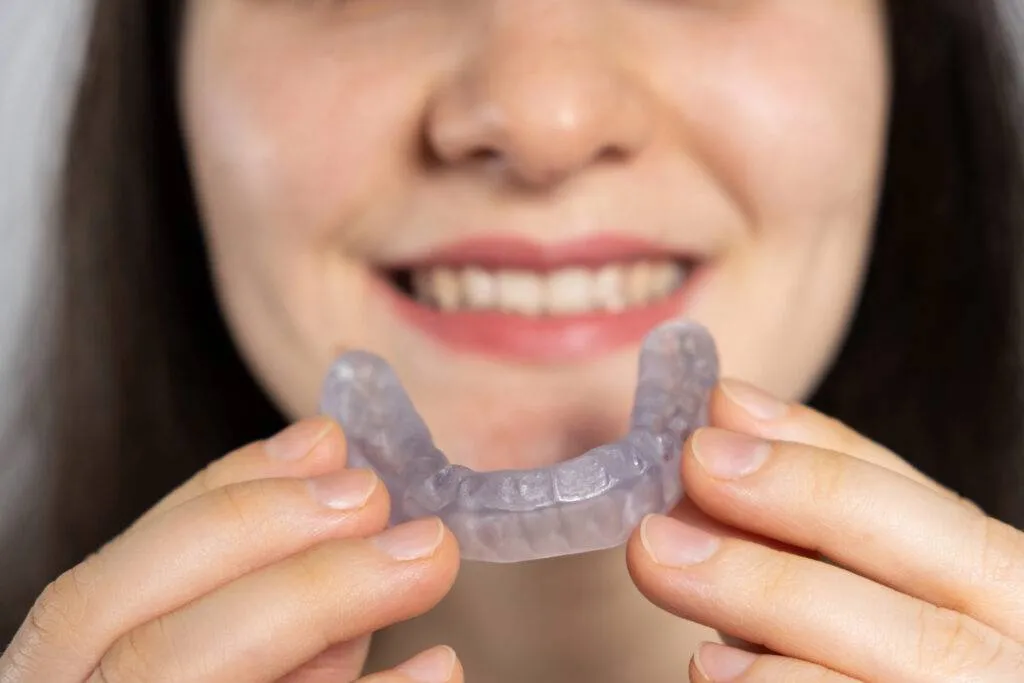
Protecting Your Teeth While You Work on the Root Cause
Even while you’re working on addressing the underlying causes of your teeth grinding, you need to protect your teeth from further damage. Think of it as wearing a seatbelt – you hope you won’t need it, but you’re glad it’s there if something happens.
Night guards are the gold standard for tooth protection during grinding episodes. I was skeptical at first because the idea of sleeping with something in my mouth seemed uncomfortable, but modern night guards are much more comfortable than you might expect.
There are basically three types: over-the-counter guards you can buy at the drugstore, boil-and-bite guards that you customize at home, and custom-fitted guards made by your dentist. I’ve tried all three, and here’s my honest take on each.
The drugstore guards are cheap (usually under $20) but often bulky and uncomfortable. They might work for very mild grinding or as a temporary solution, but they don’t fit well and can actually make some people clench more because they feel foreign in their mouth.
Boil-and-bite guards are a middle ground option. You soften them in hot water and then bite down to create a custom impression. They fit better than generic guards and cost around $25-40. I used one of these for several months and it did protect my teeth, though it wasn’t as comfortable as I would have liked.
Custom night guards from your dentist are definitely more expensive (usually $200-600), but they’re also the most effective and comfortable. They’re made from an impression of your teeth, so they fit precisely. Mine is so comfortable I barely notice it’s there, and it’s held up well for over two years of nightly use.
Taking care of your night guard properly will help it last longer and stay hygienic. Rinse it with cool water before and after use, brush it gently with a soft toothbrush and mild soap (not toothpaste, which can be too abrasive), and store it in its case during the day. I clean mine thoroughly once a week with a denture cleaner.
Some people find that wearing a night guard actually helps them become more aware of jaw tension even during the day, which can be an unexpected bonus in managing overall bruxism.
Conclusion
Dealing with nighttime teeth grinding can feel overwhelming at first, but remember that you have more control over this than you might think. The key is addressing both the immediate symptoms and the underlying causes that are driving your bruxism in the first place.
Start with the simple strategies tonight – try some gentle heat therapy, practice jaw relaxation, and work on creating a more calming bedtime routine. These small changes can provide real relief while you work on bigger picture solutions like stress management and sleep hygiene improvements.
Don’t hesitate to seek professional help if your grinding is severe or if you’re experiencing significant pain or dental damage. Your dentist and doctor are there to help, and catching bruxism early can prevent more serious problems down the road.
Remember that everyone’s experience with teeth grinding is different, so what works perfectly for one person might need tweaking for another. Be patient with yourself as you figure out your personal triggers and most effective management strategies.
Have you tried any of these strategies for teeth grinding? What’s worked best for you? I’d love to hear about your experiences in the comments below – sharing what we’ve learned can help others who are struggling with the same issues find relief faster!
